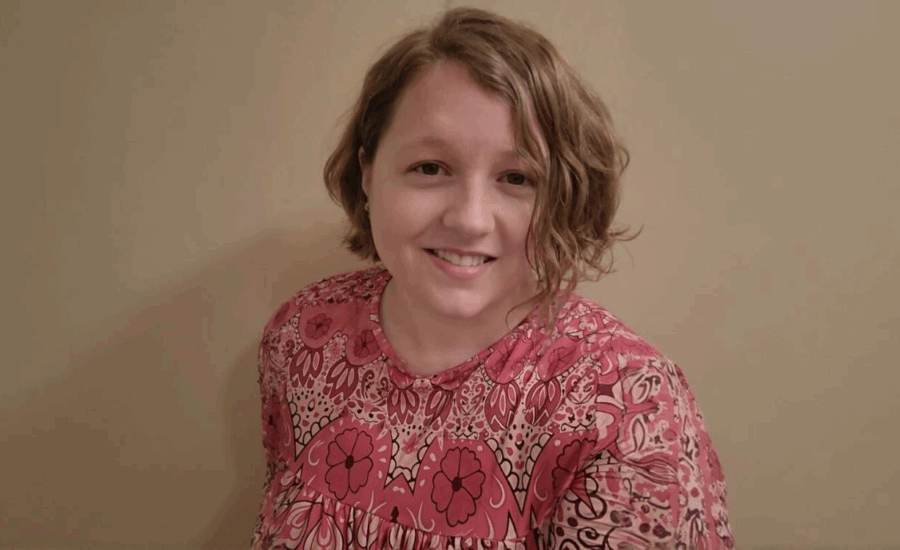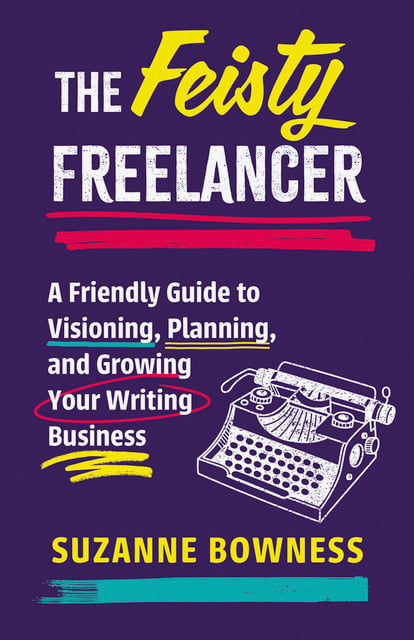Don’t be afraid to ask for an advance: Suzanne Bowness on budgeting for freelancers
Sue's tips for freelancers include paying off credit cards, saving for taxes in a separate account, and scrutinizing every purchase.
Advertisement
Sue's tips for freelancers include paying off credit cards, saving for taxes in a separate account, and scrutinizing every purchase.

Trying to make a living as a writer, editor, and content strategist, Suzanne (Sue) Bowness discovered that good money habits are as important to success as good grammar and an expansive vocabulary. This year she summed up all that hard-earned wisdom in The Feisty Freelancer: A Friendly Guide to Visioning, Planning, and Growing Your Writing Business (Dundurn Press). Her writing has also appeared in publications from The Globe and Mail to University Affairs magazine.
Since 2002, Sue has provided content creation, editing, and consulting services to corporate clients through her business CodeWord Communications. Here, she talks about her formative experiences along the road to becoming a self-employment expert—and the right way to use debt.
As a freelance writer, I had an early gig reviewing business books, several of which were financial. That gave me insight into the fact that people actually wrote books about money that helped demystify elements like the stock market and other terms. I wish money management had been taught in high school; I would have preferred that class over other math that I never use as an adult. Suze Orman was one of my favourites from those early reads for her practical advice and encouragement that anyone could understand and manage their finances.
I like walking—both in nature and cities—travelling, and seeing new places. I like reading and listening to podcasts and audio books. I also like writing fiction and poetry, although it’s sometimes exhausting to make time for creative writing after a full day as a professional writer.
I’ve always wanted to be a writer, but when I became an adult, I realized that I also needed to make a living. So I started working as a journalist and content writer. While I enjoy any kind of writing, I still like writing fiction, so I’d probably flip the time so that I’m writing my creative work during the day instead of after hours.

My earliest money memory was being given a dollar allowance from my parents for chores. (I was dusting and cleaning bathrooms; my younger brother was vacuuming. To this day these are our favourite chores. I love the quick fix of a good bathroom polish.) We would walk to our local depanneur in the Montreal suburbs and my brother would buy a big item, like a can of Coke or a chocolate bar, and I would stuff as much penny candy as I could into a little brown bag to last the week.
I think math became important for that transaction as I made the money stretch as far as possible (was it better to buy five gummy bears at two cents each or a 10-cent lollipop?). I also learned that different people want and value different things, as I never brought my brother over to my way of thinking nor converted to his.
Besides penny candy, I think a cassette tape of the soundtrack to the movie Cocktail. Also books from Scholastic.
After babysitting, my first real job was as a cashier at K-mart, where I also worked in the garden centre when I was 15. I still remember the stress when your cash register tape jammed, and I can still tell the difference between impatiens and petunias.
I’m not sure what I did with my first paycheque, although probably saved some for a band camp later that summer, which is when I had to quit because my manager wouldn’t give me the week off.
Probably saving earlier. I recall a bank having an ad in the subway about the difference in results between the person who started saving at 23 years old and the person who started saving at 30. The problem is that I think I saw that ad at 28 so I felt already behind. Also, I hated that nerd who had the wherewithal to start saving at 23.
A related lesson as a freelancer was to save my money for income taxes and HST in a separate place so you have it when it comes to tax time. It’s very easy to spend if it isn’t in a separate account.
Paying off debt with the highest interest rates first (i.e. credit cards). But also, I learned myself the advantage of having credit available (and saying yes to a lower-interest line of credit) as a way to balance out my freelance business since mostly I’m paid 30 days after I submit an invoice. I’ve also learned to proactively ask for a percentage up front if I’m working on a larger project—say 30% to 50%.
I haven’t received this advice directly, but I find all-or-nothing money advice annoying. Especially the one about how much you can save by avoiding fancy coffees. I’m not a fancy coffee regular but if that’s the spend that earns you an hour of work at a table in a coffee shop or picks up your day, then it’s fine. Treats are okay in moderation and money is also for buying a nice life today, not just saving for the future.
As a freelancer, I regularly receive large sums of money at the middle and end of projects and then nothing for a few weeks, so I am curious what it would be like to have regular deposit every week.
Focusing individually on whether each purchase is a good idea. Just because something fits in your budget doesn’t mean it’s a reasonable splurge. I don’t think I’ve ever paid over $100 for a handbag, so if I see one priced at $500, that’s just not for me. Also knowing the current cost of items that you buy regularly so you’re not tricked by marketing or “sales” to think you’re getting a great deal. I know when the toilet paper really is a good sale.
That there’s a magic age past which it’s too late. I started saving more in my 30s and I think it’s never too late. It just means I have a lot more room in my RRSP to continue filling up.
As a long-time freelancer, I feel another misconception is that self-employed people can’t have benefits or a retirement plan. I pay for private benefits and I have a plan for when I’ll retire.
Not starting to save earlier, but as above, I think it’s never too late. Now, I just spread the word to others and encourage them to start as soon as they can.
As a creative person who makes money from her work, I won’t download illegally or violate copyright in support of other creatives. Yes, I know that the artists don’t get a great share of the profit, but the infrastructure is supportive so I’ll pay for the legal streaming service rather than get a deal on something illegal. I also buy books and music.
I bought a house for the first time in my mid-40s. I had lived in Toronto for most of my adult life and finally realized that if a house was part of my life and retirement goal, then I needed to move outside of the expensive city to afford that. I had to look for a while to find something that was in my budget.
I try to pay off my higher-interest debt faster than my lower-interest debt, but I’m not afraid of it. As a freelancer, I sometimes wait for longer than reasonable to get paid, so I’m fine not to pay off my entire line of credit balance or credit card right away, even though financial types might chide me for that. If I need to pay some interest here and there, that’s fine, as long as it’s manageable. I am motivated to pay off debt but not paralyzed by having it—especially so-called good debt like a mortgage.
My last vacation south to a Caribbean resort in February? Escaping the Canadian winter is not a splurge.
The Psychology of Money: Timeless Lessons on Wealth, Greed, and Happiness by Morgan Housel. I have read a lot of books about practical financial tips, so I think it’s interesting to read about the motivations behind money and realize that any anxieties you have are more universal than you’d think.
Cash. I try to keep some on hand for farmer’s markets and emergencies.
Are cats a possession? My two cats.
Probably another trip, and also building up my emergency fund again after the extra expenses that come with buying a house.
Own, but I was a renter until a couple of years ago.
Buy. I always buy used cars.
Both.
Budget vaguely with flexibility.
Share this article Share on Facebook Share on Twitter Share on Linkedin Share on Reddit Share on Email